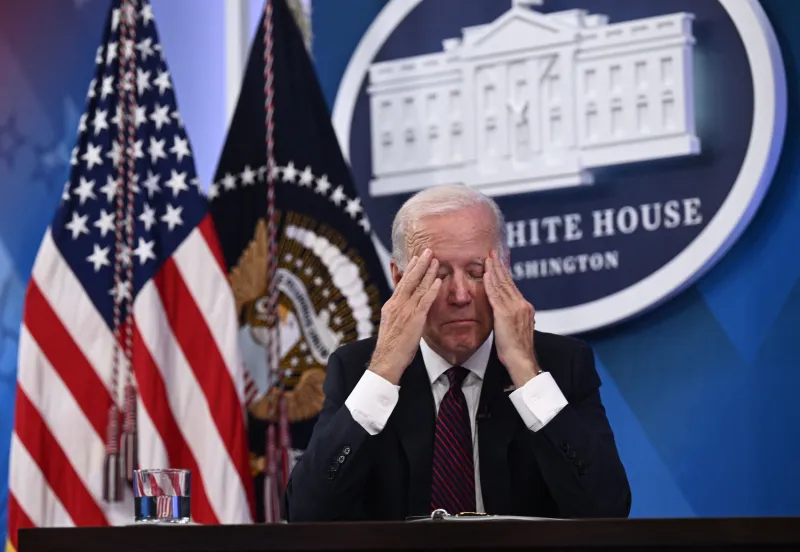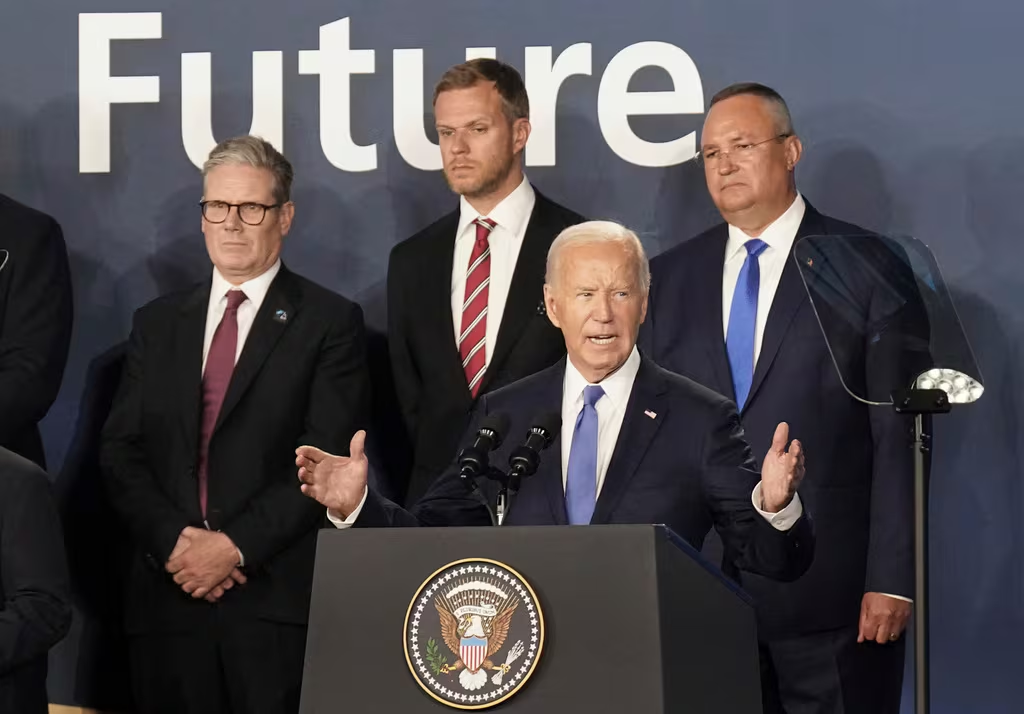The Biden administration’s approach to Middle East conflicts has been under the microscope as it navigates a complex web of alliances, rivalries, and ongoing wars. From its steadfast support for Israel to its efforts to broker ceasefires and its delicate balancing act with Gulf states like Saudi Arabia, the administration’s foreign policy has sparked both praise and criticism. As the U.S. tries to maintain its influence in the region while addressing humanitarian crises, questions about its priorities and long-term strategy are growing louder.

A Strong Stance on Israel Amid Gaza Conflict
One of the most debated aspects of President Joe Biden’s Middle East policy has been his administration’s unwavering support for Israel, particularly during the Israel-Hamas conflict in Gaza. The war, which intensified after Hamas’s attack on Israel on October 7, 2023, has resulted in over 47,000 deaths, according to Palestinian tallies, and a deepening humanitarian crisis. The Biden administration has provided significant military aid to Israel, including approving the sale of more than 20,000 U.S.-made assault rifles in early 2025, a decision it had previously delayed due to concerns about their potential use by extremist Israeli settlers.
While Biden has stood by Israel, his team has also worked to mediate in the region. A notable achievement was the brokering of a ceasefire between Israel and Hamas in early 2025, a rare moment of collaboration with the incoming Trump administration. According to a senior U.S. official, this deal was the result of months of diplomacy, though it faced setbacks, including the deaths of six hostages in Gaza in August 2024. Critics argue that Biden’s reluctance to pressure Israeli Prime Minister Benjamin Netanyahu more forcefully has prolonged the conflict, allowing Netanyahu to prioritize his political coalition over peace.
“Biden’s support for Israel is rooted in a long-standing U.S. commitment, but it’s complicated his broader goals in the region,” said Ilan Goldenberg, a former Middle East policy official during the Biden and Obama administrations. “The administration wanted to extend the Abraham Accords and normalize ties between Saudi Arabia and Israel, but the Gaza war made that nearly impossible.”
Ceasefire Efforts and Humanitarian Focus
The Biden administration’s diplomatic efforts have not been limited to Israel. In 2024, it facilitated humanitarian corridors in Gaza and secured a six-day ceasefire that led to the release of over 100 hostages. The administration also stationed two aircraft carriers in the Mediterranean to deter Iran and its proxies, like Hezbollah, from escalating the conflict. These moves were seen as a signal of strength, but some analysts argue they distracted from Biden’s broader goal of shifting U.S. focus to the Indo-Pacific region.
Outgoing Secretary of State Antony Blinken has defended the administration’s record, emphasizing its work to strengthen global partnerships. In a recent interview, he expressed hope that the incoming Trump administration would build on these efforts, particularly the Israel-Hamas ceasefire. However, posts on X have highlighted a different perspective, with some users claiming Biden’s policies favored Iran over Gulf allies like Saudi Arabia and Qatar, potentially destabilizing the region.
Al Jazeera reported that Biden’s team worked tirelessly to ensure the U.S. spoke with “one voice” during ceasefire negotiations, even collaborating with Trump’s envoy, Steve Witkoff. Yet, the political spotlight often shifted to Trump, who was seen as trying to claim credit for the deal.
Strained Relations with Gulf States
Biden’s relationship with Gulf states, particularly Saudi Arabia, has been another point of contention. During his 2022 visit to Saudi Arabia, Biden’s fist bump with Crown Prince Mohammed bin Salman drew criticism, especially given the administration’s earlier promises to prioritize human rights. Trump later claimed that Biden’s approach left Gulf allies “starving for love,” a sentiment echoed by some regional leaders who felt sidelined by the U.S. focus on Iran and the Gaza conflict.
The Biden administration pursued a Saudi-Israeli normalization deal, building on the Trump-era Abraham Accords, but progress stalled after the Gaza war escalated. Saudi Arabia’s foreign ministry has since rejected any efforts to displace Palestinians, complicating U.S. diplomacy. “The Gulf states expected more engagement from Biden, but his focus on Gaza and Ukraine pulled resources away,” said Jean-Loup Samaan, a Middle East expert at the National University of Singapore.

Iran and the Nuclear Question
Iran remains a wildcard in Biden’s Middle East strategy. The administration’s decision not to rejoin the Iran nuclear deal, coupled with its support for sanctions relief for Syria’s new leadership, has raised eyebrows. Some critics, including former Obama aide Ben Rhodes, have questioned why Biden didn’t pursue bolder steps to engage Iran diplomatically, especially when a more moderate government was in place in Tehran. Meanwhile, Israel has expressed concerns about any potential U.S.-Iran deal, fearing it could weaken its position against Tehran’s proxies.
NBC News reported that Israel is “worried about any deal” the U.S. might strike with Iran, highlighting tensions that could carry over into the next administration.
Looking Ahead: A Mixed Legacy
As Biden’s term ends, his Middle East policy leaves a mixed legacy. Supporters point to his efforts to strengthen NATO, forge Asian partnerships, and avoid direct U.S. military conflict in the region. Critics, however, argue that his policies have been reactive, failing to address the root causes of Middle East instability. The Gaza war, in particular, has been a sticking point, with some accusing Biden of prioritizing Israel’s security over Palestinian lives.
“Biden came in with decades of foreign policy experience, but the Middle East proved as challenging as ever,” said Richard Haass, president emeritus of the Council on Foreign Relations. “His administration achieved some wins, like the Gaza ceasefire, but the region remains a powder keg.”
As the U.S. transitions to a new administration, the Biden team’s final days are focused on cementing its achievements while addressing ongoing crises. Whether these efforts will be seen as a foundation for peace or a missed opportunity remains to be seen. For now, the Middle East continues to test America’s role on the global stage, and the world is watching closely.
Must Know ;- Alabama’s al.com Surges 67% in Visits with Local Investigative Reporting






